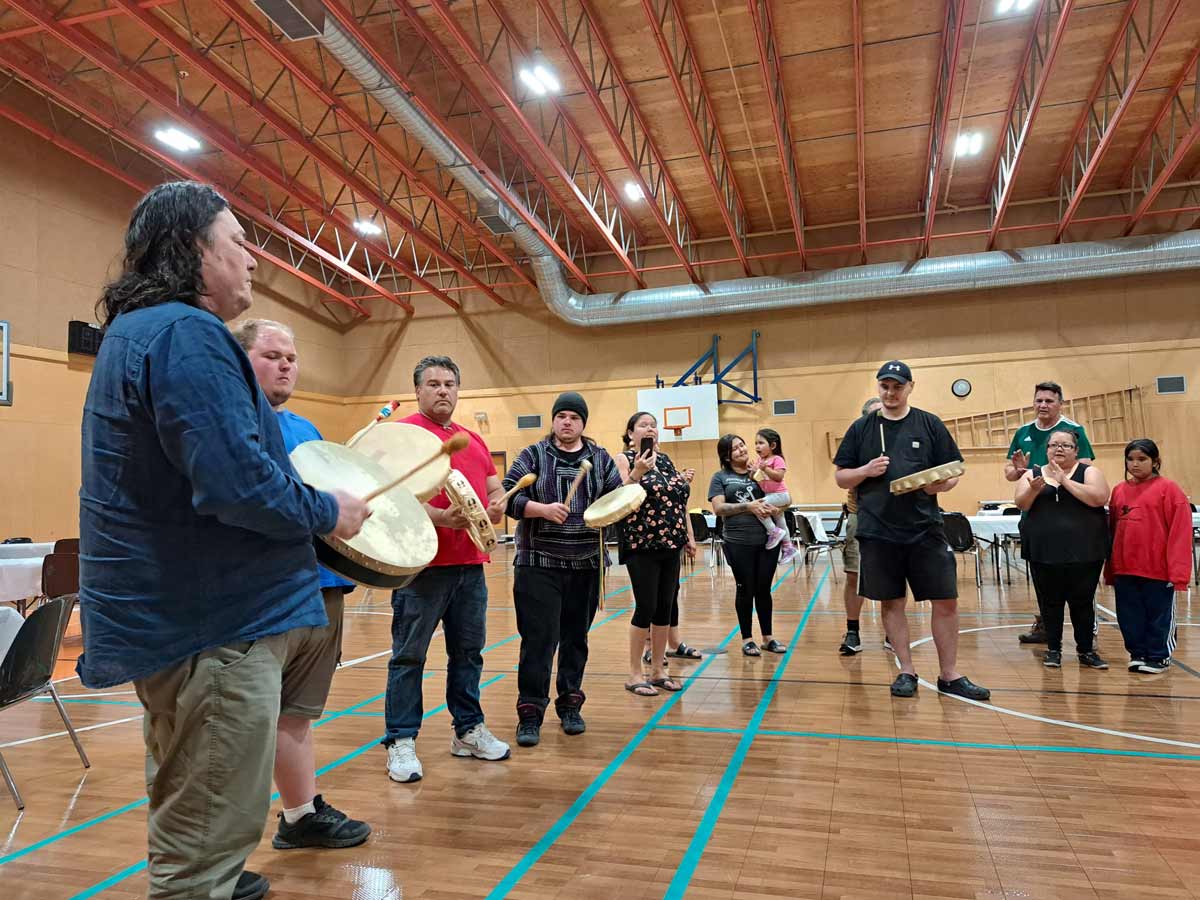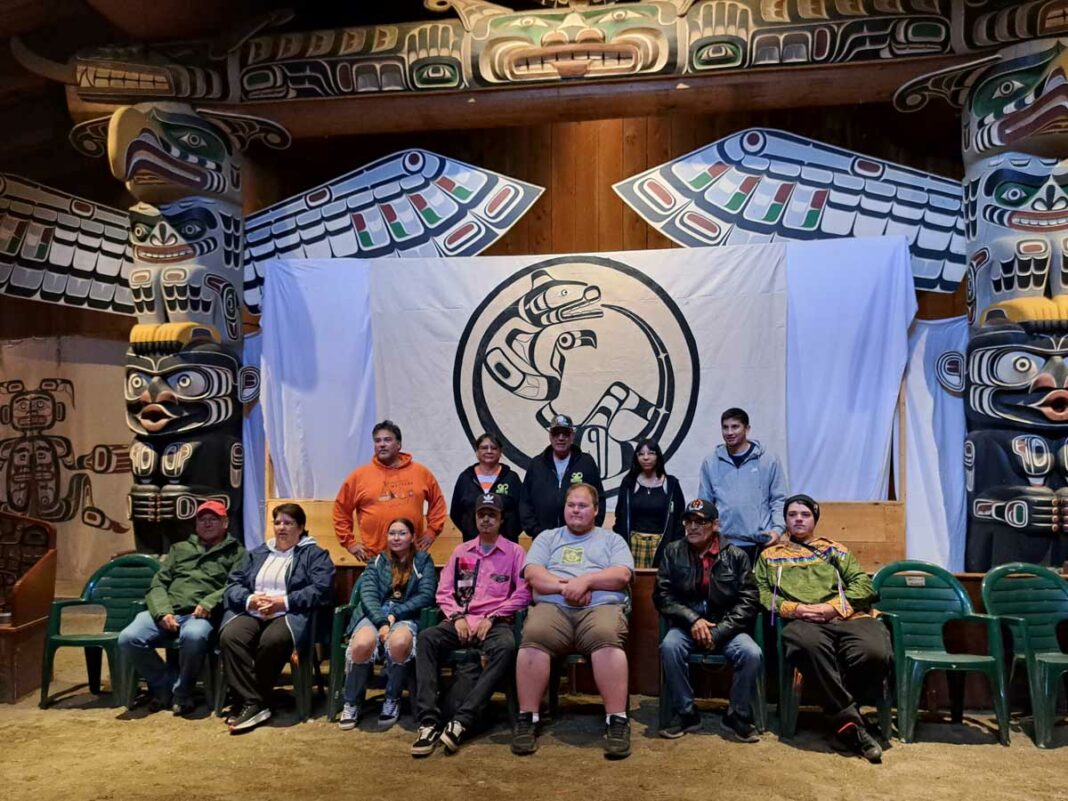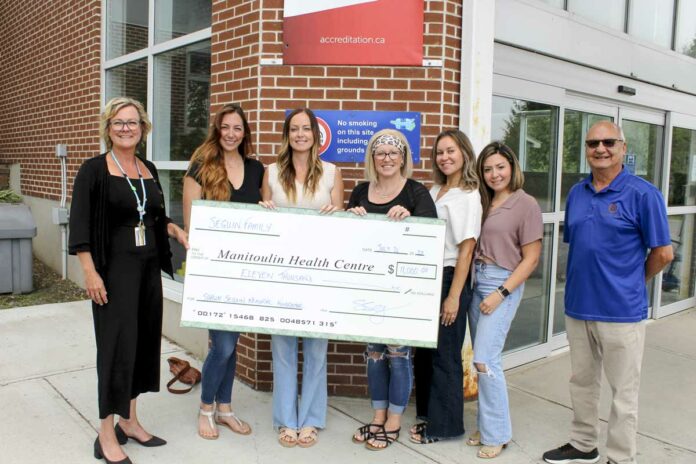M’CHIGEENG—It has been a 10-month odyssey of discovery for a group of Weengushk Film Institute (WFI) students taking part in a land-based learning experience where the intricacies of filmmaking are integrated with Indigenous history, language, foods and culture in the unique ‘Journey for Knowledge’ program. Now, with their storytelling set firmly on Indigenous foundations, the WFI students are starting out on new journeys of their own to bring their stories of the land and its original people to the word.
The ‘Journey for Knowledge’ program is an extended version of an earlier experiential program, said WFI vice-president Nano Debassige, where WFI discovered it takes four to six months for students to overcome barriers in order to convey their own visions through film. The program is accredited through Laurentian University.
The final portion of the program, which included in-depth interactions with knowledgekeepers such as Craig Fox and experiences on the land that included trapping and learning how to harvest for sustenance, was a cross-country trip westward from Manitoulin Island to Namgis First Nation on Vancouver Island.
In their journey between those two Islands, WFI students were hosted by several First Nations and American tribes where they discovered commonalities, and differences, belied by mainstream depictions of Indigenous cultures and traditions.
Paul McIntyre, 52, is the eldest of the students taking part in the program. A M’Chigeeng resident, Mr. McIntyre is a Sheshegwaning band member. “It was 25 days of excitement and fun,” he said, “non-stop like a whirlwind, the whole first nine months here was like that.”
Mr. McIntyre was initially drawn to the program by the trapping element. “I knew how to kill the animal,” he said, “I just didn’t know what to do with it after that.” But it was the cultural element that surprised him the most. “I really wasn’t aware of how much was involved with it.”
“I was saddened to leave any of the places we visited,” he said, citing Pas Plat (located near the Ontario border) as his favourite. “Because they were having a tough time out there. It’s a real ghost town, but they really came out for us. It really shows the love they give.”
In Pas Plat, the students took part in a Midewin Lodge where they discovered a great deal about their culture and traditions.
“It thought it was really amazing,” said Presley Meawasige, 26, of Sagamok First Nation. “It really opened my heart.”
Her favourite spot was Alert Bay. But she found it interesting how the community had to move away from the oral tradition of passing stories down to writing them down to preserve them largely due to the cultural genocide they had encountered over the preceding generations. Ms. Meawasige’s short film won the student film category at the Weengushk International Film Festival held a few weeks after the students return.
Gerard Armstrong said the trip was “very long, but fun.” His favourite part of the trip was also Alert Bay. “I think it was because we stayed there the longest,” he said. He also was very impressed by the Crazy Horse Monument that has been under construction for 85 years. “It’s going to take very long to finish,” he said, “probably not in my lifetime.”
The immense size and diversity of the country really struck Dexter Bowerman. “Just seeing it, the mountains, the swamps, the prairies, the lakes, to be on the ocean,” he said. Among the discoveries made by the students were how the land shaped and influenced the culture and traditions of each group they met on the cross-country journey.

Hunter Smith is a non-status Mohawk and Oneida from Six Nations. “One of the things that struck me is how we are all facing the same issues,” he said. “Almost every reserve we went to has the same problems, trouble getting funding for water, housing. One of the things I noticed is how much worse things are in the States. Canada is doing a much better job.”
“In every place, the culture is different in strength, but it is much stronger in British Columbia, the only place that was lacking was language,” he said. “There, everybody danced, everybody sang.” The other thing about British Columbia was the lack of “bugs.” Being out on the land there were plenty of bugs, especially ticks—but not in BC.
Mr. Smith also discovered that there is a lot of hope when it comes to cultural revitalization. “Especially our generation and the generation before us is doing a lot of work to revitalize the culture,” he said. “That is something I am really glad to see, everybody working together to uplift each other.”
“Growing up, I didn’t really have that connection,” he noted, adding that, “intergenerational trauma really hit our family hard.” Still, he is seeing moves to recover traditional foods and agriculture in his home community. The WFI program offered him the opportunity to hunt his first deer, an experience that taught him a tremendous amount about his nation’s past and their connections to the land.
Video diaries and interviews gathered throughout the journey by staff and students will form the basis of a documentary and will be used in a case study. The program’s measurable outcomes will also provide a sound foundation upon which to base future proposals to building on the program’s success.





